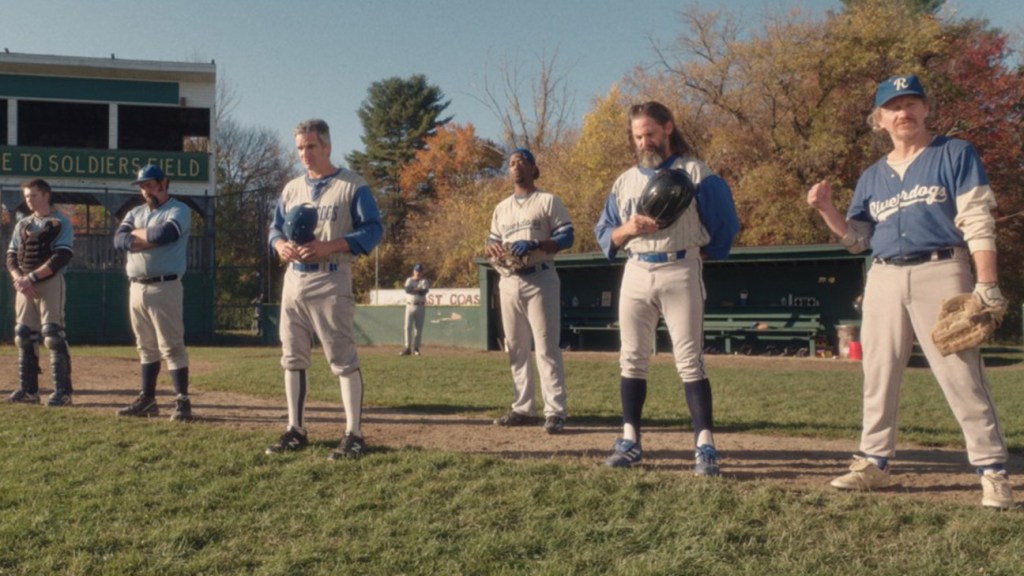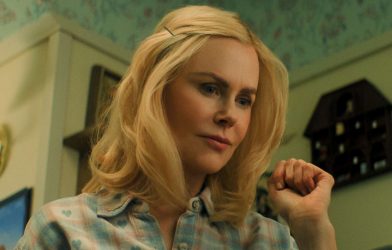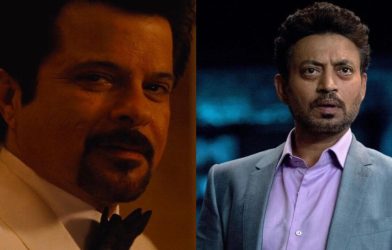
Most baseball movies are not, per se, about baseball. To take some examples: The Natural is about a prodigy overcoming trauma; Eight Men Out is about greed and corruption; Bad News Bears is a foul-mouthed coming-of-age flick; Bull Durham is all about Kevin Costner’s sex appeal; Moneyball carries the sport into the information age; and Field of Dreams (Costner, again) is haunted by the ghosts of baseball past.
First-time director Carson Lund clearly had this in mind when he made his feature debut Eephus, a movie steeped in nostalgia for the game itself, as well as what it represents for a bunch of men past their prime: the long afternoons in the sun, the trash-talking at the plate, the brewskies in the cooler and the kind of camaraderie you can only find in the dugout.
Eephus
The Bottom Line
Take me out to the ball game.
Venue: Cannes Film Festival (Directors’ Fortnight)
Cast: Keith William Richards, Cliff Blake, Ray Hryb, Bill “Spaceman” Lee, Stephen Radochia, Frederick Wiseman, John Smith Jr.
Director: Carson Lund
Screenwriters: Michael Basta, Nate Fisher, Carson Lund
1 hour 38 minutes
In many ways, this existential and increasingly surreal indie effort, which seems to be set sometime in the 1980s or 90s, is a Field of Dreams in reverse. Instead of building their mythic field, these middle-to-over-aged athletes are squaring off on one that’s about to get torn down and replaced by a school. Meanwhile, just next door to their beloved diamond is a, gulp, soccer field that’s attracting more and more young players.
It’s the end of an era, perhaps the end of America, and one of the charms of Lund’s unabashedly low-fi movie is that this last and totally inconsequential game between a pair of minor-minor-minor league teams never really ends, but rather drags on into extra inning after extra inning, way past sunset and deep into the night. It’s baseball as a means to ward off the inevitable demise we all must face. Baseball against death.
If that sounds like heavy stuff, for much of its running time Eephus plays more like an offbeat, old-school sports comedy — the kind they used to make back when baseball was still the country’s number one pastime. (According to current surveys, it now comes in third after football and basketball.)
Crabby men in their 40s or above put on uniforms that are too tight for their waistlines, complaining about their bad knees. Some of them take the game too seriously, while others are only there to hang out. A boom box plays radio ads (narrated by the great Frederick Wiseman, a New Englander himself) for tiny local businesses, while a pizza truck operated by a guy well past retirement sits idle in the lot.
There are too many characters on hand to focus on, although a sort of narrator appears in the form of Franny (Cliff Blake), an aging, die-hard fan who keeps box scores and dishes out quotes from legends like Yogi Berra. He winds up becoming the umpire when the real one goes home, trying to call pitches from way up in the bleachers. By that time daylight is fading, although most of the players are still there.
Lund, who edited the film and composed the music with his brother Erik (credited as costume and co-production designer), served as cinematographer on Tyler Taormina’s Ham on Rye and Christmas Eve in Miller’s Point — the latter which, like this movie, premiered in Cannes’ Directors Fortnight.
The two filmmakers share a predilection for turning slices of Americana (proms, holidays, ball games) into stories that gradually lose their plots, becoming more bizarre and less predictable. In Taormina’s case the effect can be downright Lynchian (especially in his underseen Happer’s Comet). Lund’s touch is more lighthearted in the vein of, say, Richard Linklater (who remade Bad News Bears back in 2005), even if the themes tackled in Eephus are dark as well.
“I need to be put down,” one crusty old player gripes. “I think this is it for me,” says another as he tosses his glove to the dirt. There’s plenty of gallows humor about aging and dying, although the film moves slower than most comedies and the jokes are rarely laugh-out-loud funny. Lund is more interested in creating a certain kind of cinematic mood, not unlike the slow, sinking curveball (the titular “eephus”) that one relief pitcher specializes in, and that seems to be forever suspended in time.
The film sustains that “eephical” mood for as long as possible, just as the players decide to keep playing after hours, using the headlights of their old Chevies and Plymouths to illuminate the field. “I’m looking for something to happen and poof, the game’s over,” one of them declares, and it’s a critique that could probably be applied to the film itself. But Eephus isn’t exactly a baseball movie — it’s something closer to movie-baseball, where characters endlessly jostle back and forth under no real time constraints, watching the day and night slowly pass then by, simply out of love for the sport.









